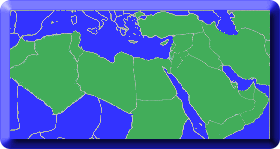
Topics in Middle Eastern and North African Economies
Document Type
Article
Publication Date
9-1-2013
Journal Title
Topics in Middle Eastern and North African Economies
Volume
15
Publisher
Middle East Economic Association and Loyola University Chicago
Abstract
The study uses a cross-sectional data set for 209 countries in order to examine the relationship between gender inequality and its determinants, such as the economic development, information communication technology (ICT), education, and institutions in the Middle East and North Africa (MENA) region. We test whether the regulation of social life by Islamic norms and values is related to gender inequality and whether the impacts differ for the MENA countries, as well as Arab and Muslim majority countries. The study finds that the impact of gender inequality differs for the MENA, Arab and Muslim majority countries only when control variables are excluded from the regressions. The apparently significant religious and oil impacts disappear once control variables, such as the institutional quality, education, and ICT, are incorporated into the regressions. The paper obtains empirical evidence against belief that the religion and oil are culprits responsible for holding women back in the MENA, Arab, and Muslim majority countries. Neither of these factors fully explains the facts.
Identifier
2334-282X
ISSN
2334-282X
Recommended Citation
Kucuk, Nezahat, "Gender Inequality in the MENA: Myths versus Facts". Topics in Middle Eastern and North African Economies, electronic journal, 15, Middle East Economic Association and Loyola University Chicago, 2013, http://www.luc.edu/orgs/meea/
Creative Commons License

This work is licensed under a Creative Commons Attribution-Noncommercial-No Derivative Works 3.0 License.
Copyright Statement
© 2013 the authors



Comments
Presentation of the articles in the Topics in Middle Eastern and North African Economies was made possible by a limited license granted to Loyola University Chicago and Middle East Economics Association from the authors who have retained all copyrights in the articles. http://www.luc.edu/orgs/meea/volume15/meea15.htm